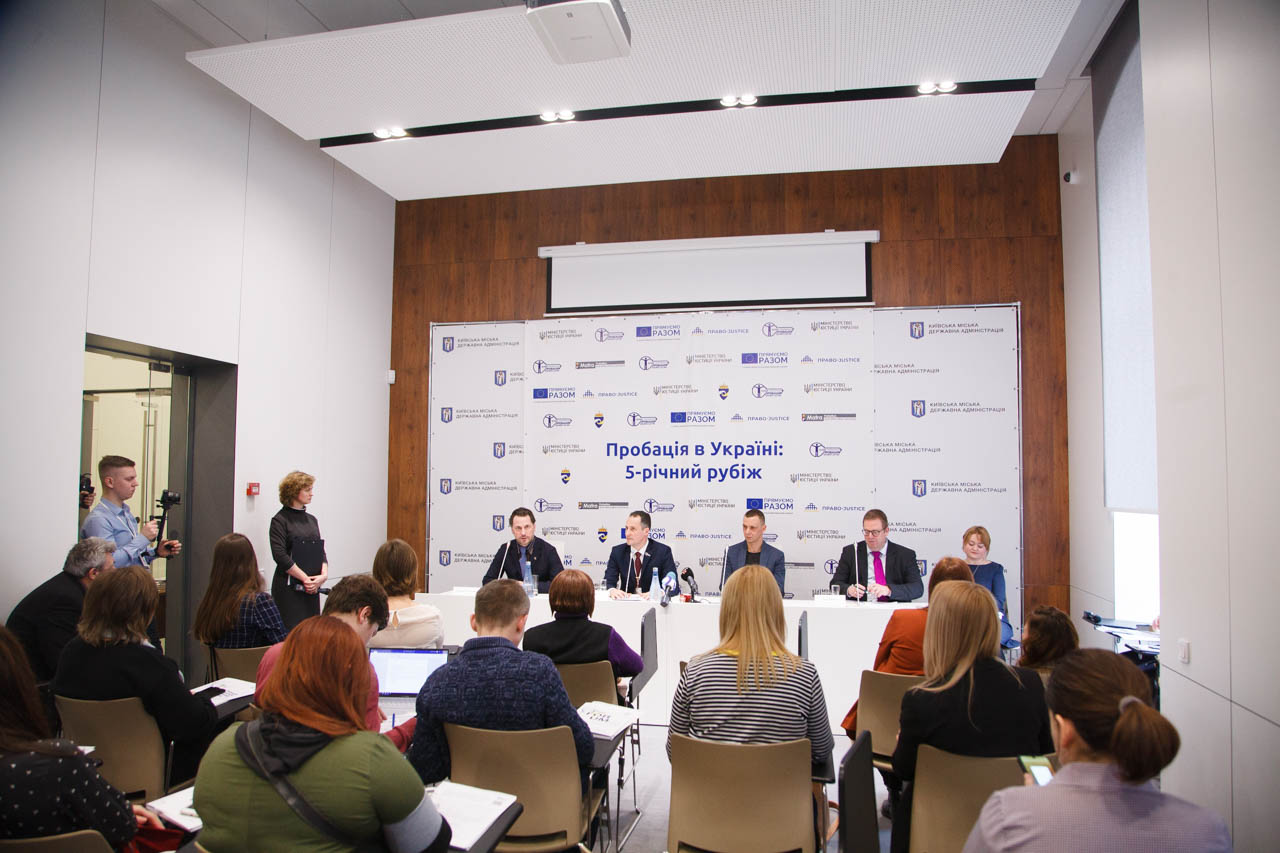EU supports probation reform in Ukraine in line with European standards

The probation reform in Ukraine as an alternative to imprisonment has been in place for five years. Since the implementation of probation, more than 300 000 convicts have been supervised by the Probation Service, administrative penalties were applied to 81 715 offenders. Most importantly, 96% of probation clients do not reoffend during the probation period. These and other results were highlighted at the First Forum "Probation - A Safer Society", held on February 26, 2020, at the Kyiv City Council with the support of the EU Project Pravo-Justice.
“There are now about 52,000 prisoners in Ukraine. It is a huge army of potentially unemployed people who are in squalid conditions. Therefore, we have the aim to reduce the number of people in prison by increasing the number of probation clients. Probation makes the society safer at a lower cost than the prison system. There is a lot of such evidence in various European Union jurisdictions. And Ukraine is making progress on this issue,” Dovydas Vitkauskas, the EU Project Pravo-Justice Team Leader, commented.
European experts have been helping Ukraine in developing of the probation system, implementing the best practices of nearly 100-year experience of probation. In particular, international experts from the EU Project "Pravo-Justice" elaborated the HR strategy for the probation staff, Risk and Needs Assessment tool, professional standards, inspection systems, improved training programmes and started working on the implementation of the implementation of the Register of Convicts. Thanks to the support from the EU, volunteers are engaged in the development of probation in Ivano-Frankivsk and Dnipro. By the end of January 2020, almost 900 volunteers were conducting social and educational work with convicts, providing psychological assistance, assisting with employment and providing counselling.
“The adoption of the Law of Ukraine "On Probation" five years ago was a strategic decision. During this time, the system has helped thousands of our citizens, and this activity does not end there. In the future, we plan to expand the list of non-custodial sentences. It is also necessary to improve probation tools, set up IT infrastructure and disseminate information about the system functioning. Special thanks to the volunteers, without whom such results would not be possible," Oleh Yanchuk, Director of the State Institution "Probation Center", said.
Probation is a pro-European progressive, non-custodial approach. Instead, it helps offenders to adapt to society, correct themselves and prevents them from committing repeated criminal offenses. For example, by community and correctional work. Probation is important to the state and society because it costs the state 10 times less than prison. In addition, society has a positive influence on the process of rehabilitating the convicted person while the latter preserves family relations, work and housing.